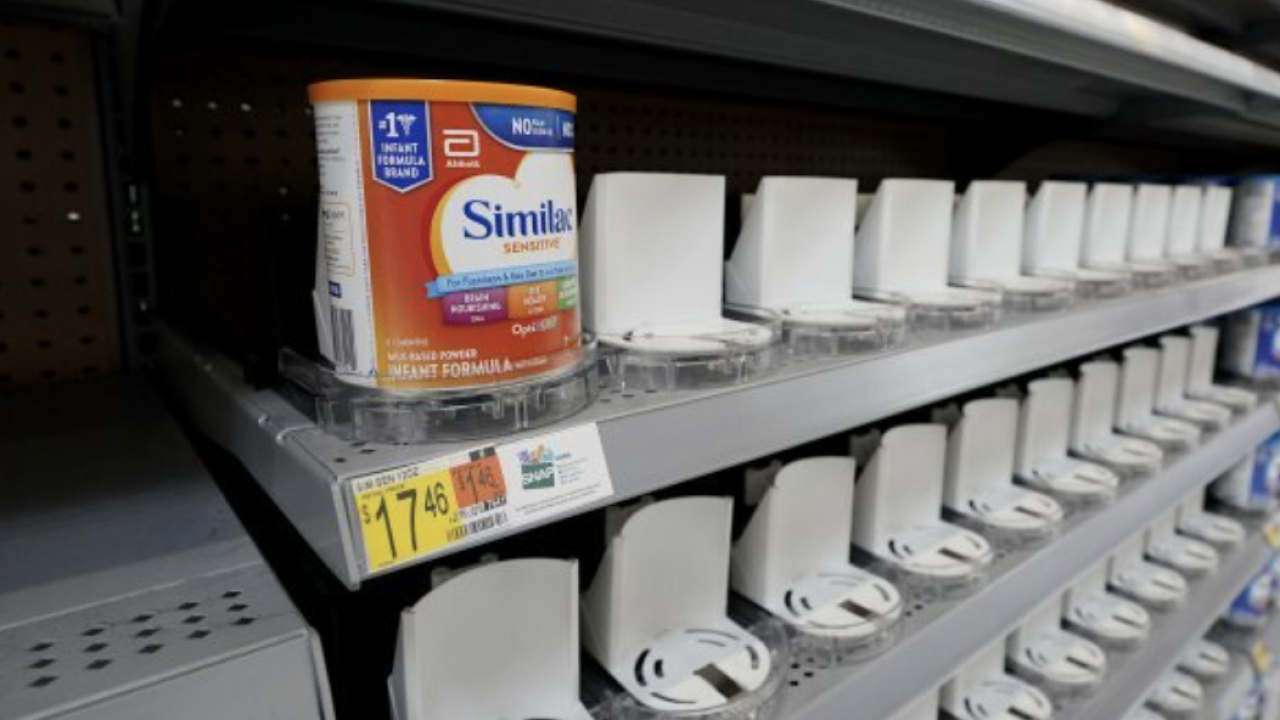MILWAUKEE — Over 40% of America's baby formula supplies are out of stock. Recent data shows that it's gotten so bad that Congress plans to address the shortage in a hearing later this month. But some parents need help right now.
Part of the problem is a major recall from Abbott over concerns about bacteria at a manufacturing plant, then add in supply chain issues, and it's led to empty shelves and growing frustration for parents.
New mom Jamie Gallagher says she plans to breastfeed as long as she can. "I'll pump on the road, wherever I have to," she said. Gallagher hopes that if she eventually needs formula it will be easier to find.
"I do have a few friends, four of them that are also new moms. One of them is doing formula and said she hasn't had a problem with what she uses," added Gallagher. "I think she's just been lucky so far."
Many parents have to rely on whatever is in stock.
Lisa Chowdhury, a pediatrician at Children's Wisconsin, said she knows of local families who are having trouble finding formula. "They've been driving to Sheboygan, driving to Cudahy, and driving everywhere in between. They get like one or two cans at a time because now there is a limit on how many cans you can get."
Constantly switching to a new formula is something pediatricians say is not ideal, but can be done. "If you can kind of stick in your class of the type of milk, you can feel pretty confident in switching brands," said Dr. Chowdhury. "If you can go slow and steady, that seems to make the babies a little bit happier." She recommended mixing the last of the old formula with the new as a transition tactic.
Some parents are considering taking steps they normally wouldn't to feed their infants, like watering down formula to make a container last longer or even making their own formula at home. Medical experts say that comes with a big red warning label — don't do it.
Camila Martin, a pediatric clinical nutritionist with UW Health, said some infants have been hospitalized because their parents or caregivers tried to make homemade formula. "If the concentrations are off, or if the vitamins and minerals are off — even by a little bit, babies are sensitive to those minor changes. It can be quite dangerous," said Martin.
According to the CDC, most babies (84.1%) at some point are fed formula. About 47% of babies are exclusively breastfed at 3 months and just 25% at 6 months. Most can start trying solid foods around six months, but leaning heavily on that is not recommended.
"Their systems aren't able to process and digest and filter solid foods until a certain age," explained Martin. "So it can actually be a significant choking hazard as well — their gut just isn't ready for it."
Most pediatricians keep a stock of formula. They get a lot of samples and can usually give you a can or two. Dr. Chowdhury said it might not be the formula you're currently using — but it is something. She also recommended that families double-check to see if they qualify for the WIC program. WIC offices are not handing out formula but they will reimburse you for formula, and if you're having to switch to a different brand, it can get pricey.
Both Dr. Chowdhury and Martin agree that the bottom line is — if you need advice, you should talk to your child's pediatrician or your family doctor. And you should especially be talking with them before you try anything different when feeding your infant.




